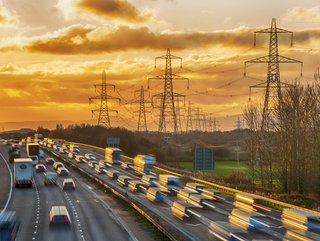Navigating the Energy Transition Towards a Net Zero Planet

The transition to net zero — especially when focusing on addressing the ever-pressing issue of climate change — is, in short, defined by striking a balance between the amount of greenhouse gases emitted into the atmosphere and the amount offset or removed.
When level, this equilibrium means no additional emissions are sent out into the air. Achieving net zero on whatever scale is crucial in mitigating the impacts of climate change, an area in which the energy sector plays a central role due to its current, and significant, contribution to global greenhouse gas emissions.
In this Special Report, Energy Digital takes a look at the challenges facing decarbonisation efforts on the road to net zero and means of combating climate change — as well as the impact of the transition to net zero.
To reach net zero emissions by 2050, investment into clean energy will need to more than triple by 2030 to around US$4tn each year, according to the International Energy Agency (IEA). This global effort is not only set to benefit the environmental wellbeing of our planet, but has the capacity to create millions of new jobs, have a significant positive impact on economic growth and create a more equal and equitable means of accessing energy.
There’s no doubt that significant change must come into play to get there, either. With a fiery industry-wide drive to make energy cleaner propelling the industry’s significant and rapid change before the end of the decade alone, leaders are pulling together to share their collective knowledge with one clear goal in mind: to pave the way to a greener tomorrow.
Transitioning to net zero is critical to tackle the climate crisis head on, limiting the effects of global warming before its catastrophic impacts become irreversible.
“As a key participant in the energy transition, we know that the most significant impact we can have is through the work we do with our customers,” shares Sue Brown, Executive Group Director Sustainability at Worley, a global professional services company of energy, chemicals and resources experts. “But we also need to transform our business.”
Implementing the transition towards net zero
Brown highlights her company's progress despite challenges facing Worley and many others — whether they be geopolitical tensions and the impact off the back of the pandemic. Notably, Worley has reduced Scope 1 and 2 emissions by 64% between 2020 and 2023 and is on track for net zero emissions in these scopes by 2030 and Scope 3 by 2050.
On top of this, Worley is investing AU$100m (US$65.2m) in high-growth areas to accelerate sustainable transformation and digital enablement, partnering with customers on breakthrough projects like direct air capture, low carbon hydrogen and renewable fuels.
This sentiment is echoed by the Global Head of Sustainability at Wipro P.S. Narayan, who outlines his company's E+ESG framework. Narayan, who played a part in the creation of Wipro’s sustainability programme and has stewarded it since its inception in 2008, says the company’s sustainability charter is built on the core principle that business and social purpose must reinforce each other to address the key challenges the world faces.
The Indian Big Tech company, which has an energy perspective that encompasses a comprehensive strategy facilitating the integration of the likes of renewable energy adoption, emissions reduction and supplier engagement, is positioning itself as a leader in corporate sustainability and helping others do the same.
“Our approach constitutes creating economic value in a manner that is ecologically sustainable, socially responsible and based on the bedrock of good governance,” he says. Wipro’s main goals include achieving net zero greenhouse gas emissions for Scope 1 and 2 by 2030 and Scope 3 by 2040, with an interim target of reducing Scope 3 emissions by 55% by 2030, as well as aiming to implement 100% renewable energy across all Wipro-owned facilities by 2030. And it doesn’t stop there, with Wipro implementing various strategies, such as engaging suppliers to reduce emissions and promoting electric vehicle use for employee commuting.”
Over at ICT services provider Logicalis, which has clients among some of the world’s most influential energy firms worldwide, sustainability and ESG are front and centre.
“Alongside our longer-term goals, such as our commitment to become carbon neutral on scope 1 and 2 emissions by 2025, we also outlined a number of policies that we are already implementing successfully,” details Charissa Jaganath, the group’s Global Head of Responsible Business. Spearheading initiatives to reduce environmental impact, she shares Logicalis’ partnership with RouteZero to promote low-carbon commuting. With 25% of operations already on renewable energy, the group aims for 100% reliance on renewables by 2030.
With the above executives, despite their varying backgrounds and core industries, all set on decarbonising for the benefit of their business and planet. There is another front they are united on, and that is the importance of striking a balance between short-term economic considerations and long-term sustainability goals.
“There is no instruction manual for achieving net zero,” Brown professes. “It’s a complex, multi-decadal transition and needs to occur at an extraordinary pace and scale. We’re only six years away from 2030, at which point the world will have needed to cut greenhouse gas emissions in half to avoid global average temperatures rising by more than 1.5°C. There is a burning platform for change.”
She firmly believes that although policy ambition is important, it should not compromise the disciplined allocation of private sector capital or cause a disorderly and ultimately failed climate response.
“A radical, but responsible, new approach to delivery is needed,” she calls. “The capital discipline process is essential, but it must be accelerated to achieve mid-century net zero.”
A cause that requires collaboration, Narayan echoes 2030’s looming nature. “When prioritising net zero considerations and business goals, the attitude to have is one of foresight,” he professes, “including sustainability considerations as much as possible into every business decision.”
Narayan emphasises how sustainability framework considers five years to be short-term, distinct from the conventional business perspective. Addressing net zero targets requires both short- and long-term strategies, he stresses determination to ensure sustainability in all business decisions alongside core objectives is vital.
And for Jaganath, Logicalis’ emphasis lies heavily on achieving long-term goals, prioritising them over short-term economic gains.
“We recognise that significant change cannot occur instantaneously, but we believe that the sooner businesses establish initiatives aimed at yielding long-lasting results, the more beneficial it will be,” she shares.
Key strategies for a net zero transition
As highlighted by Chief Innovation Officer at Schneider Electric Nadège Petit, addressing the climate crisis requires an imaginative mix of existing and leading-edge technologies. Schneider Electric is deploying a multifaceted approach to enable progress toward net zero goals for both its own business and its customers.
“We understand the need for innovative solutions that may not even exist yet but are crucial to enabling the energy transition,” Petit declares. “My organisation at Schneider Electric, Innovation at the Edge, is at the forefront of anticipating these challenges and turning them into opportunities. By fostering future technologies that drive the energy transition, we pave the way to a net zero world, bringing together internal and external innovation. Leveraging our expertise in energy management, we empower consumers to become 'prosumers' who can produce and manage their own energy.”
Highlighting disruption is key to making any form of meaningful change, Petit states how incubating and bringing disruptive businesses to market presents challenges, one often being time. However, she advocates that collaboration with startups — like what’s happening within Schneider Electric — and offering resources throughout their growth stages allows for technological breakthroughs to be uncovered at a more rapid pace.
“We’re deeply committed to driving innovation that will lead us towards a net-zero future,” she says with strong will.
Collaboration essential to net zero being within reach
By design, achieving net zero — especially across Scope 3 — requires a lot of innovative approaches, and cannot be attained alone. This is why working together across industries, governments and communities, and the knowledge sharing and accelerated adoption of sustainable practices it leverages, is critical to doing so in ample time.
“Government support, informed by industry expertise, will be imperative to ensure countries and businesses can meet net zero targets and gain the economic and energy security benefits of a successful transition,” Brown says.
“Economic incentives and disincentives have a significant impact on the viability of decarbonisation projects and we’ve seen how government programmes have helped to mitigate risk in renewables projects. It provides the security to scale these efforts at the necessary pace.
“But the job is certainly not done. While global energy transition spending hit record highs of US$1.8tn in 2023, that needs to double for the world to meet net zero targets by 2050. Policies and regulations that facilitate and encourage this will be key enablers.”
Worley has been involved in almost 5,000 energy transition projects as of the start of 2024. Working with other entities, as Worley widely has, showcases that partnerships with innovative businesses are vital to accelerating the transition to net zero.
Narayan foresees collaboration with other industries, including technology, will help Wipro and others like it in the pursuit of zero carbon emissions.
“I think AI will play a big role in accelerating this,” he states. “We have established several partnerships to help us baseline and achieve carbon reductions. We will be partnering with organisations to assist us in engaging with our suppliers to calculate and collate their data. We are also looking to engage in a partnership to assess climate risk and its impact on our business.”
For Logicalis, one of its core commitments towards sustainability is to partner and collaborate with others within its orbit to promote and support better sustainability practices. Working to ensure its suppliers have science-based sustainable targets in place by next year is just one way in which it is demonstrating how collaboration and working together is pivotal to accelerate progress towards carbon neutrality.
“Not only do we encourage our ecosystem of partners and customers to prioritise creating and incorporating sustainable practices, but we also use the tools they make,” Jaganath says.
For example, Logicalis’ partnership with Cisco — using The Cisco Takeback and Reuse Program to responsibly recycle end-of-use products and deploying solutions that enable smart buildings and intelligent connectivity — is highly beneficial and shows a focus on driving both sustainability and innovation.
From hearing these insights, it’s safe to say that climate action is being taken increasingly seriously, and there’s a continued call to action for efforts to ramp up even further as we nudge increasingly close to target deadlines. The energy landscape and journey to achieving net zero is by no means a smooth ride, but with high stakes come equally rewarding rewards and opportunities in abundance. Here, the vulnerabilities and daunting nature of this journey are clear, as is the unwavering commitment to this cause, which rings true when set alongside the collective power we all have to reshape our energy landscape and preserve the precious planet to secure a brighter and greener future.
*******************
Make sure you check out the latest edition of Energy Digital Magazine and also sign up to our global conference series - Sustainability LIVE 2024.
*******************
Energy Digital is a BizClik brand.







